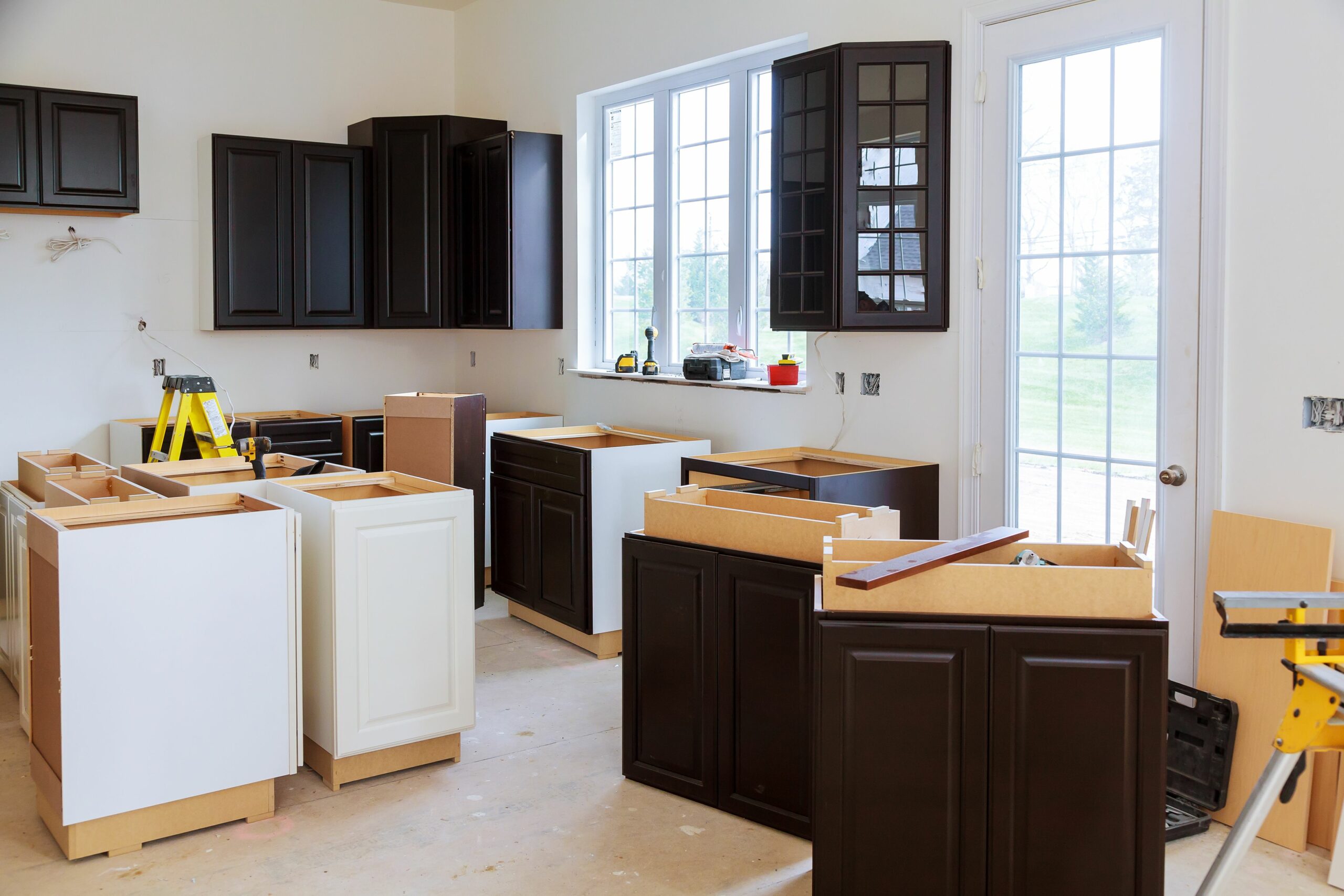Home renovations can be exciting projects that take your space from good to great. But paying for the work and waiting for these makeovers to wrap up while living in a construction zone can be a stressful part of the process.
“It’s important before you begin your renovation to plan ahead,” says Damla Turgut, founder and creative director at Otto Tiles & Design. “Be prepared for the unexpected and remember that poor planning and communication often leads to mistakes and delays.”
BHG’s 2024 DIY Trends Report shows that 70% of homeowners say they’d rather hire a professional to do these major projects to avoid messing something up, so chances are you’ll also be working with a contractor. Here, experts offer tips on how to comfortably live in your home while you or a team of professionals complete your project.
- Damla Turgut is the founder and creative director of Otto Tiles & Design.
- Catherine Jacob is the Head of Design at Hovia.
Problems to Anticipate with Home Renovation Projects
One of the easiest ways to handle discomfort during a renovation project is being able to anticipate the problems you might encounter so you can take preventative measures.
Oftentimes homeowners have difficulty living in the mess of a prolonged project. One way to combat this is to schedule the project for a time of year that’s less busy.
“Try to schedule your renovation during a period in which there may be reduced traffic or people in your home, such as your kids being at camp, during summer when you’re spending more time outside, or during a business trip,” Turgut suggests.
As you plan, be sure to research your contractors to ensure you’re choosing the best team for the job. Doing so will reduce stress as things unfold. It’s also smart to look at the work they’ve done and establish clear boundaries and communications.
Turgut suggests telling contractors which doors they can use to enter and exit the home and implementing black-out hours when they won’t be working on-site or communicating with you.
“It’s also worth checking that your home insurance is up to date before you start a renovation in case damage does occur to your home or belongings,” she adds.
Top Tips for Living in a Messy Home
The idea of remodeling your entire kitchen while living at home might seem like a daunting or impossible task, but experts say you can get through any project with some foresight.
Isolate the Area
“There will be dust—it’s inevitable during a renovation—but the trick is to keep on top of it,” Turgut says. To start, block off a portion of your home that will be your living area.
“Depending on the scope of your renovation, if there is a room, no matter how small that you can designate as a temporary living space, free of reno chaos and activity where you can relax with some home comforts, TV, music, and books, it will make the disruption more livable,” Turgut says. “At the end of a long day, you’ll be grateful for having a sanctuary.”
This will be especially important if you also work from home. Turgut suggests investing in noise-canceling headphones so you can get work done alongside a noisy crew.
Gather Essentials
Next, focus on setting aside the things you’ll need from the room.
“If you’re renovating your kitchen, try and move appliances like your fridge and freezer to another room or garage where you can set up a temporary meal prep space,” Turgut says. “If you’re not able to relocate your oven and hob, then a compact microwave, toaster oven, slow cooker, or air fryer is a great convenient option to keep mealtimes on track without having to reach for the takeaway menu.”
Carefully pack and store the rest of the items that need to be taken from that room.
Labeling your boxes as if you were moving will be helpful should you need to find something from your kitchen a few days or weeks into the project.
“Try to take a proactive approach to decluttering and packing away as much as possible to make space for renovation work and to avoid items being broken. Store any items that you don’t use daily, focusing on the basics,” Turgut says.
Prepare pets and children for renovation projects by ensuring they cannot get into the construction zone if it’s dangerous. Make sure all of their belongings are accessible in other parts of the house.
Prevent Dust and Debris
To eliminate dust and exposure to chemicals and products used on your project, consider having your rooms taped off with plastic to contain some of the mess. Most crews will do this as part of their preparation, but it’s helpful for any DIY projects as well.
“Dust sheets can tear easily so slightly thicker sheeting will have a higher chance of success when it comes to keeping dust at bay,” Turgut says. “Keep windows open in adjacent areas to help with air and dust flow and clean down adjacent areas at the end of each day.”
“You’d be amazed at how dust travels and the last thing you want to be doing is constantly cleaning,” says Catherine Jacob, head of design at Hovia. “For instance, even if you’re planning to change the door to the room, keep it as long as you can so you can close the door on the mess at the end of the day and limit the impact on the other rooms in your home.”
You can also ask your contractor to keep their tools and workspace in another area or outside. “Try and reduce the flow of traffic into the room or space you’re renovating with one point of entry and exit,” Turgut adds. “Ask your contractor, if you are using one, to cut tiles, drywall and other materials outside to reduce dust, debris, and general mess.”
Take a Vacation
And if you can afford it, consider planning a well-timed vacation or a staycation that allows you to leave your home for part of the project, Turgut suggests. Even staying with a friend for a few days could ease the stress.
Reducing Stress During a Prolonged Home Reno Project
Preparing for a renovation project is one thing. Surviving the project is another task entirely. Staying stress-free during a renovation comes down to sufficient planning and a good mental framework.
“It can feel endless at times and frustrating but remember, a renovation will be inconvenient, there will be noise, there will be dust, but it is only temporary,” Turgut says.
By planning for the pitfalls, you can avoid the bulk of the stress.
Create a Timeline
Come up with a timeline of the renovation project so you can set your sights on key milestones. Having an estimated completion date to look forward to will also help you navigate.
“Ensure a plan is in place ahead of renovation so that you as the homeowner are aware of any tasks which need to be completed before construction starts,” Turgut suggests. “Make sure your contractor or workers understand your vision for the project and any needs which may need to be taken into account during the renovation and likewise ask your contractor about predicted timelines and any unique challenges or concerns they may have before work starts.”
If you’re working on the project yourself, plan a schedule for when certain parts of the project will take place. Be sure to include hours when you won’t be working on the project to avoid feeling as if you’re living around power tools and a to-do list 24/7.
Plan for Pitfalls
Finally, plan for the potential that the project could take longer or cost more money than anticipated. Keeping clear lines of communication with your contractors can help mitigate these expectations.
“Keeping a positive and open dialogue is essential for reducing delays and enhancing the success of a project,” Turgut says. “Don’t be afraid to ask questions or provide solutions to any problems which arise.”
Need a break from it all? Don’t be afraid to ask for help. “Call on favors from family and friends,” Jacob says. “Being able to have a shower or bath in a DIY-free zone does wonders for your mood and outlook.”


